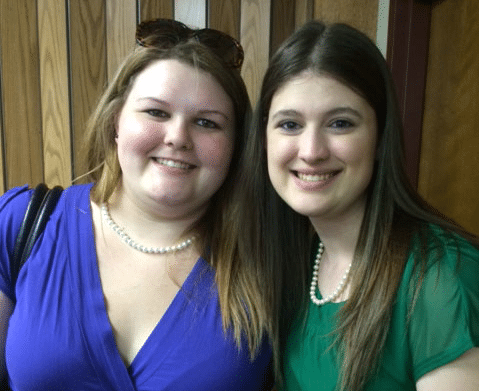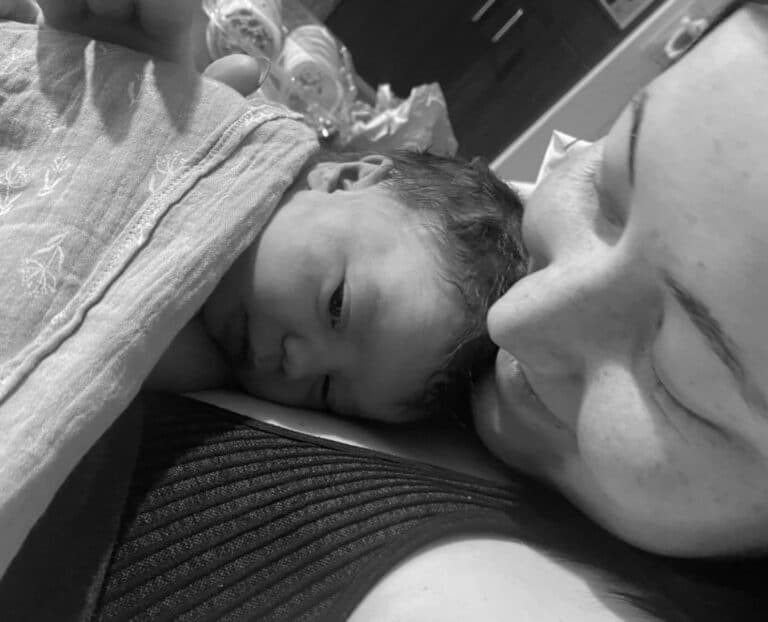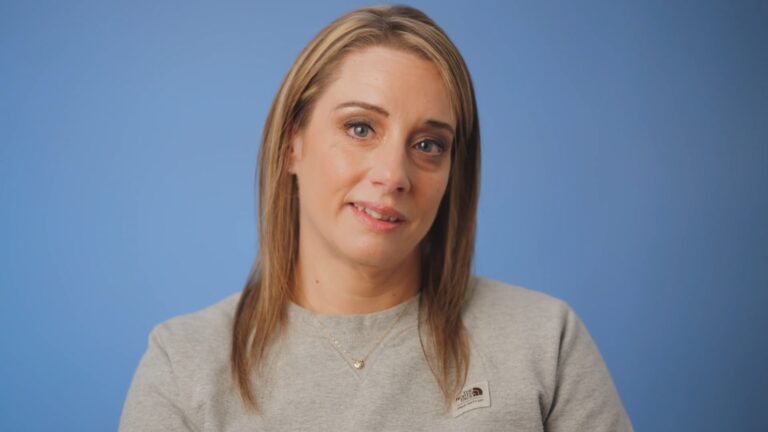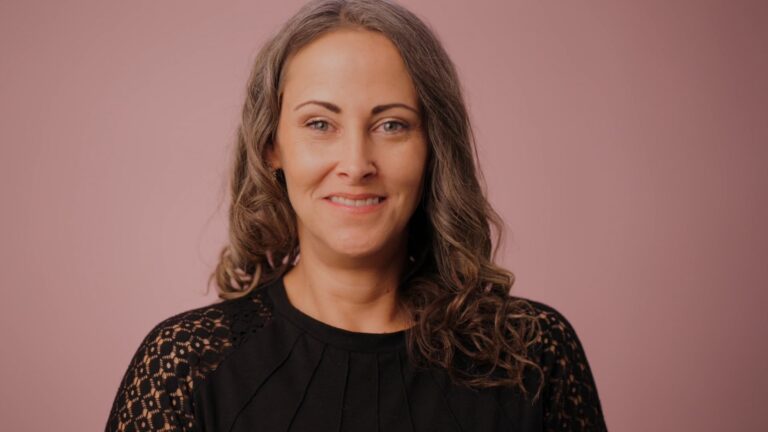Taken from an article written by an adoptive mom, Helen Harris, these four heartfelt narratives will captivate and challenge your perspective as they clarify how individual experience and relationships change over time. The authors include one adoptee, her birth mom, and adoptive mom, and her sister. The relationships challenge the adoption stereotypes of good and bad, address the myths that surround reunion, and propose possibilities for children through adoption that values birth families.
I remember looking at the few pictures we had of Meagan (Beth) and thinking how similar we looked, deep brown eyes, same button nose, and brown curly hair. All I could seem to think about though is, I wonder if she’s thinking about us, too.

I don’t remember when I made the actual connection that she was MY sister; the little girl in the picture was my baby sister. Although I grew up with other children who were my step-siblings and felt like my siblings, there was a connection they had with each other that I longed for.
When mom sat me down to tell me that Diane had made contact with her and that Beth and Helen were looking to make contact, I was shocked; a wish that had become so unreal was finally coming true. I started telling everyone about her, showing them her pictures from Facebook, telling them our story, about the wonderful parents she had and the love and support they gave her. Most people couldn’t understand why my mother couldn’t care for another child when she already had one. They kept using the phrase “gave up” making it sound like a horrible act. I informed them of the situation my mother was in at such a young age and how she did this to better the lives of not only Meagan and myself but about how she was helping a couple in need and want of a baby girl. My mother went out to meet Beth and Helen. There was a picture they sent to me. It was of the two of them side by side having coffee. I automatically cried; this was what had been missing, my sister.
Meeting Beth that November was an experience I’ll never forget. She was more than I imagined; she was smart, funny, incredibly caring, and most of all the sister I’d wished for. We had bizarre similarities like the way we made our coffee in the same order and at the same time. I remember looking across the breakfast table at Helen who was just staring in complete awe and smiling; smiling because I knew they had raised Beth to be the best version of herself, always willing to help others, never giving up on childhood and youth and loving herself for who she is. There is no doubt in my mind that our lives are different because these three wonderful people finally came into our lives, but I believe we were brought together again to make both of our families whole.

I do not remember ever not knowing I was adopted. It was my bedtime story as a child: “Once upon a time, there was a young mommy who loved her baby very much...” and so on. Even though I grew up wholly loved, I knew there was still something missing.
I could not, and still cannot, identify exactly the shape of this missing piece of my soul or articulate its name, yet its absence was tangible. It is difficult to put into mere words and make sense of how I could grieve for someone I had never met.
I remember this clearly from an incident when I was about seven years old, and I ran up to my mother in tears, almost inconsolable, and the only thing I could say to articulate my feelings at that stage in my life was that I missed my birthmother, this person that I had only a picture of and two handwritten letters from to identify as a real person.
Through the years, as a child and preteen, I remember how all my friends would sometimes talk about how they were born, what their moms told them about the day they were born or when they were pregnant with them and the things they craved, how big or small they were, and the list goes on. I always felt left out and awkward because they had answers to all these questions while I had none.
The social stigma of being adopted is real. I remember once when an unkind classmate found out I was adopted, and was therefore convinced that I was thrown away and unloved, unwanted, somehow lesser in value. However, I always had a very positive view of my adoption and set her straight by telling her my whole life story.
I never internalized those things, but it did resonate with me that other kids had experiences and knowledge that, at that time, I didn’t think I would ever have. My parents always tried very hard to portray my adoption as something very positive, knowing that “negative stereotypes of birthparents can undermine children’s self image” (Gitters, 2000, p. 8). My mom always spoke of Jennifer, my birthmother, in glowing terms—how much she loved me, how she wanted the best for me, how strong she must be to have made such a hard decision. Mom also, to this day, expresses her grief that I couldn’t grow up with Jennifer, yet her joy that I got to grow up with her and my father. Of course, I had imagined what my life might have been like if I had grown up with Jennifer, and had my big sister in my life (something I always dreamed of after growing up with an older brother). However, I also recognize that God has written my story this way for a reason, and that my past experiences make up who I am—that if I had grown up differently, I would be a different person. I would not change anything about my life, but of course I have always imagined what my life might have been like. I recognize that God has written my story with way for a reason.
As I grew up through the years, I kept this positive view of my adoption close to my heart. I never felt ashamed of being adopted. If anything, I was proud of it and willing to tell my story to anyone who asked. I even felt kind of special for it.
However, starting when I was about fourteen or fifteen, the major feeling I had was one of being completely stuck. I was in that stage of identity formation when I was supposed to figure out who I am and who I am supposed to be, but I felt I could not know where I am or where I am going if I didn’t know where I came from. I felt I couldn’t know myself without knowing my roots. Though I had always wanted to know, it was during this time in my life that I began really exploring the possibility of reuniting with Jennifer.
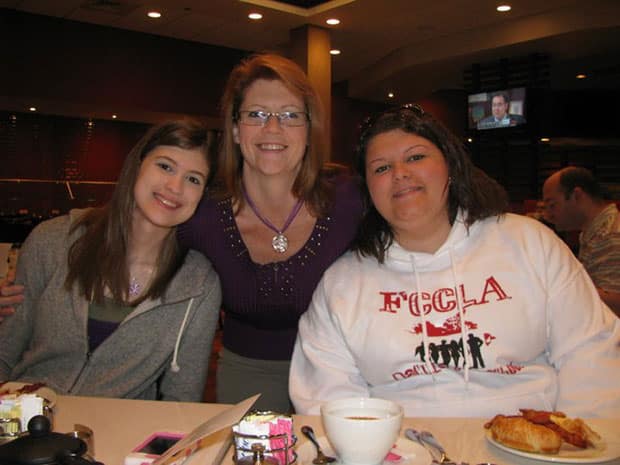
In February 2010, three months before I graduated high school, my parents and I made the decision to officially search for Jennifer. My social worker Diane, who had been a part of my life since before I was born, found my sister Caiti on Facebook, which then led to our finding Jennifer. We made initial contact, which led to a phone call, which led to a face-to-face meeting over Labor Day weekend of that year. Imagine all the emotions rushing through me, a brand new college freshman, driving up to the hotel where I would finally see her after 18 years. She wasn’t just handwriting on an 18-year-old letter or a printed face on a photograph—she was real. I almost couldn’t believe it. I went back and forth from terrified to nervous to so excited that I was almost jumping out of my skin. Then I saw her face, and as we walked toward each other to hold each other for the first time since the day I was born, I finally knew what it was to be complete, to feel like a whole person, to be healed. It was surreal. We spent the weekend just getting to know each other. I kept hearing phrases like, “When I was pregnant with you,” and “When you were born,” phrases that my peers growing up took for granted, but I had never heard directed at me. I could finally start to identify those things about me that were genetic, things that were resultant of my upbringing, and things that are just me. Few people have that kind of opportunity to distinguish between nature and nurture. The whole weekend was perfect. It was everything we all hoped it would be, and more. All weekend my two moms and I were constantly surprised at all we had in common. That November I met my big sister Caiti. She instantly fell into the big sister role, asking me if I was okay after we initially hugged each other and I said a tearful “Nice to meet you.” Meeting my sister made one more dream come true. I discovered that week that Caiti and I make our coffee the exact same way, in unison. It was one more thing I had always seen my friends and others experience with their siblings or parents, and was finally getting to experience myself.
I had experienced an identity crisis through much of my childhood and adolescence. Now, here I am, knowing the roots of my past and feeling love and support for my future. I know exactly who I am and who I want to be. I know what I am called to do, and I know that I have so many wonderful people behind me who will love me and support me, whatever happens.

Keep reading - jump to Part 3 of the story.
If you're interested in reading the full article written by adoptive mother Helen Harris and published by Baylor University's Journal of Family & Community Ministries, subscribe here (it's an easy sign up).
